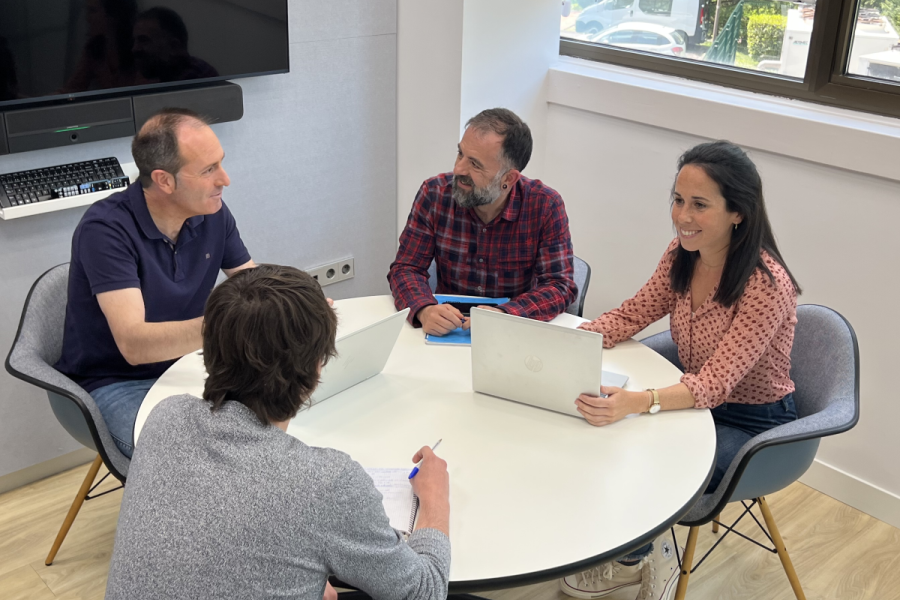GENERAL NEWS / 28-04-2023

Since June 2022, the International Labour Conference (ILC) decided to include "a safe and healthy working environment" in the framework of the International Labour Organization's (ILO) fundamental principles and rights at work.
This standard is an evolution of OHSAS18001 that, as well as regulating safety management systems, integrates seamlessly with other standards such as ISO 9001 and ISO 14001.
ISO 45001 takes a proactive approach that requires hazard risks be assessed and corrected before they cause accidents and injuries, whereas OHSAS 18001 was more reactive, focusing only on risks and not on solutions.
All Grupo Arania companies are ISO 45001 certified and today we want to give you a closer look at what this certification means on a day-to-day basis.
We have brought together the people responsible for implementing and maintaining this management system in the different companies of the Group and they have explained some of the keys to this standard.
Please meet Rosa Artaza (AR Shelving), Enrique Bellido (AR Racking), Fernando Calvo (Aratubo) and Endika Rodriguez (Arania).
¿Enrique, what is ISO 45001 in your own words?
Like any management system regulation, it defines a structured way of working that helps certain objectives to be met; Occupational Risk Prevention in this case. There may be other ways to attain them, but we know that by implementing ISO 45001 – reviewing and improving the established procedures every year – we will be able to meet those objectives, creating a working environment that is as safe as possible. This is something seen on a daily basis.
Why is occupational health and safety certification appealing, Rosa, and is it compulsory?
Legally, no, it is not compulsory, but it is an increasingly common requirement for clients who use it as a criterion to select and evaluate their suppliers. By it being an international and recognised certification, we show suppliers, clients and other stakeholders that we are willing and committed to protecting people and to working in a safe and healthy environment.
Implementing this management system is also very beneficial in terms of cohesion, as it involves all departments in continuous improvement and raising awareness of the importance of ORP.
Fernando, what difficulties have you found implementing this standard?
Well, as with any new implementation, it requires time and a change of habits, and it is usually difficult for people to accept this. Ultimately, though, we are all interested in a safer workplace, and this will pave the way.
Enrique, you wanted to point something out
We already had the experience of the other standards, which made the process much easier. As a positive aspect, I would particularly like to highlight the involvement of workers through the Health and Safety Committee. In the audits, they always interview one of its members, and the auditors identify their knowledge of the ORP situation as a strong point of our company.
The companies in the group were already accredited to OHSAS18001, what changes were needed from one to the other, Endika?
Its structure, based on ISO standards, the requirement for greater involvement of senior management and, above all, participation, which means consultations with workers to identify needs and expectations focused on prevention.
Implementing ISO standards is always synonymous with prestige and good business practices. What specific benefits has this certification brought about in your companies? And what does it mean for the people in the Group – one of the pillars of Grupo Arania – to have this guarantee for their health and safety?
Enrique: It brings net advantages when accessing clients who consider ORP very important.
Fernando: It is confirmation of the company's solid commitment to health and safety.
Endika: For me, it translates into a greater sense of belonging.
Rosa: We are the first to benefit from participating in eliminating or minimising risks at work.
Any final thoughts?
Of course, yes. We are convinced that we should enhance communication about this and the other rules; we believe that their importance and the depth of their impact is not well known. This is why we think it is very appealing to pass on this information both to people in GRUPO ARANIA and our stakeholders.